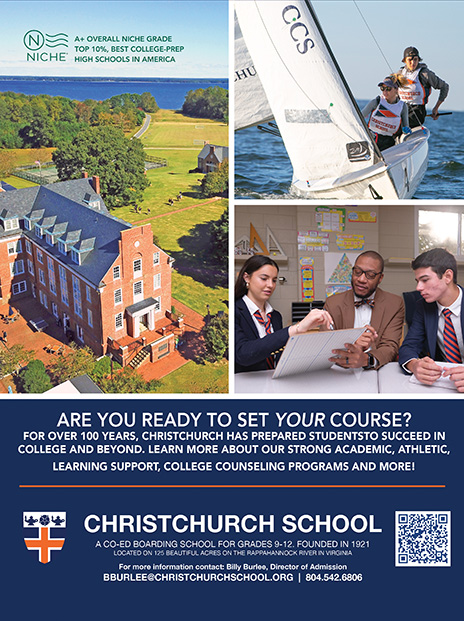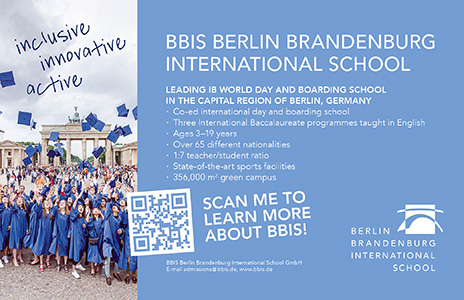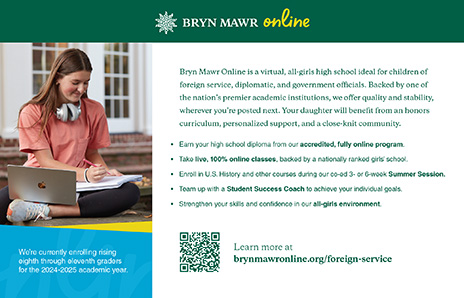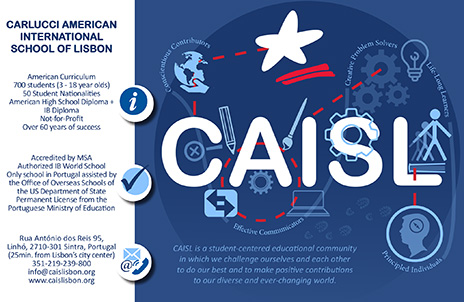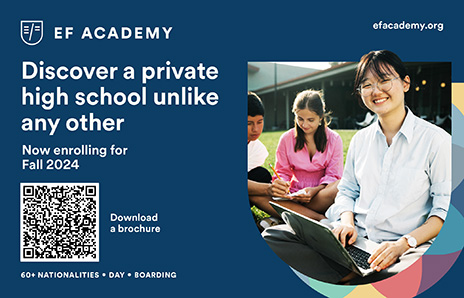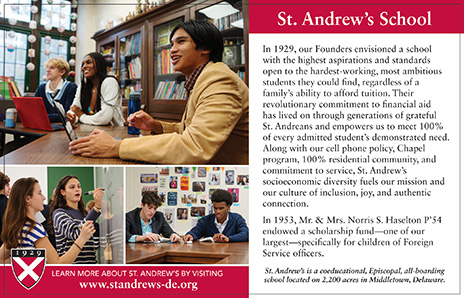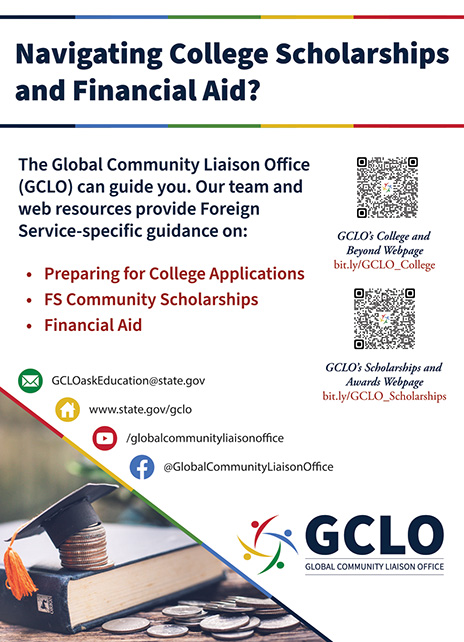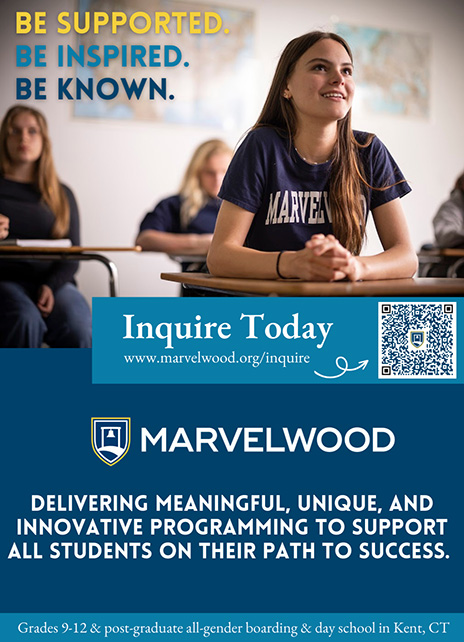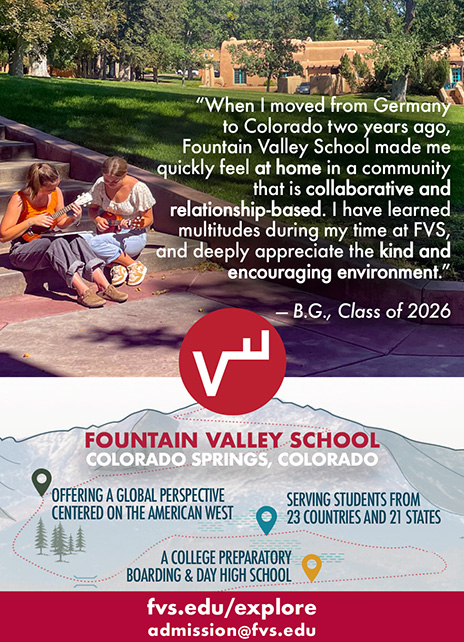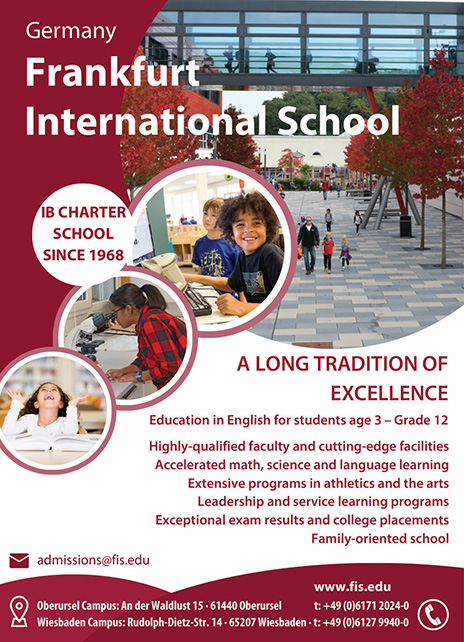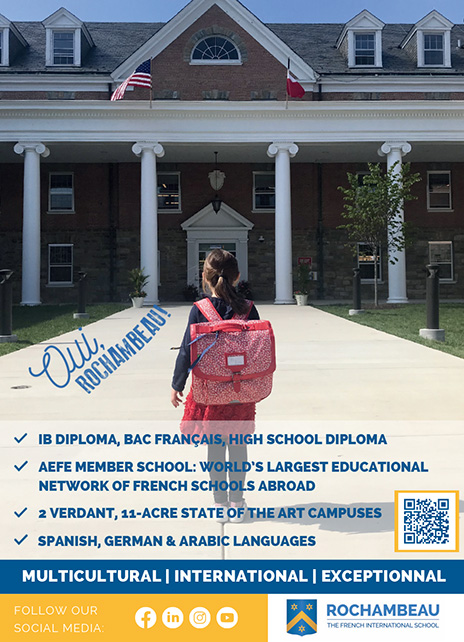Beyond Borders: Launching Third Culture Kids
Here are tips on managing the college and overseas transitions.
BY REBECCA MCPHERSON
In August 2023, my spouse and I departed for post, leaving our three daughters at different universities, all in different time zones. While we were familiar with managing the transition to a new assignment as a family, moving overseas without our college students added another layer of preparations.
As the education and youth program specialist for the Global Community Liaison Office (GCLO), I had the opportunity to participate as a panel member in the “Lunch and Learn” events hosted by the Foreign Service Institute’s Overseas Briefing Center (FSI/TC/OBC), titled “Moving Overseas Without Your College-Aged Children.” These sessions inspired the focus of this article: legal considerations, effective communication strategies, and potential challenges for our Third Culture Kids (TCKs) as they embark on this new phase of their lives.
Legally Speaking: The Top 10 Documents All College Students Need
As we move around the world, Foreign Service families need to keep track of numerous legal and financial documents, and our college kids are no different. As we prepare our children to head off to university, we focus on finding bacteria-resistant shower shoes, signing up for care package deliveries, and checking off every item on the dorm essentials list, but we must also remember the important legal documents they should have in their possession. Best Colleges and the National Law Review list the following as the top 10; the first three can be prepared by an attorney or using an online service:
1. HIPAA Form: The Health Insurance Portability and Accountability Act (HIPAA) of 1996 authorization form should name a parent as an authorized party to ask for and receive information about the student’s health situation. The absence of this form complicates your ability for access in an emergency and will leave you no option but to get a court appointment as guardian.
2. Health Care Power of Attorney: This designates a parent as a “medical agent” to view and make health care decisions.
3. General Durable Power of Attorney: This authorizes a parent to make financial decisions on the student’s behalf.
As we prepare our children to head off to university, we must also remember the important legal documents they should have in their possession.
4. Bank Information—Debit/Credit Card, Checks: If your student is under age 21, consider opening an account with your banking institution to access and review their finances without requesting permission. One Foreign Service mom said this helped her to have a conversation about how paying $40 for a Grub-Hub or UberEats lunch every two days instead of using the prepaid meal plan at the school dining facilities might be the reason why the student did not have any money by the end of the month.
5. Birth Certificate.
6. Driver’s License, Passport, or Other Photo ID.
7. Digital and Hard Copy of Emergency and Other Important Contacts.
8. Medical Records and Insurance Card: Most insurance plans allow the employee to cover their dependents up to age 26. Universities also offer health insurance plans, but those can be expensive, and many provide the same services that your student can access under your existing plan. When we forgot to opt out of the university insurance plan for our oldest daughter’s first semester, the mistake cost us an additional $1,600.
9. Official School Records and Documents: Make sure they bring official records the university requires. Keep in mind, some of those forms may need specific information and parental guidance to fill out. The Family Educational Rights and Privacy Act (FERPA) is a federal law that gives parents the right to access and amend school records and protect disclosure of personally identifiable information from those records. If you want to retain this access—not all families do—once your child is 18, a legal document must be in place to continue to have access.
10. Social Security Card (original or scanned copy).
Communication Matters
As parents, we go from seeing and talking to our children daily to being separated by time zones, oceans, and thousands of miles. It can be confusing to figure out how—and how frequently—to chat. Striking a balance between checking in and giving space can be difficult. During the FSI/TC panel discussion, I had the opportunity to ask several TCKs and their parents to share their insights on communication strategies and tips for those embarking on this new journey.
Have a conversation before the start of the school year. Set realistic communication expectations that you all can agree on. Be patient and flexible.
Striking a balance between checking in and giving space can be difficult.
Remember communication is a two-way street. It’s important to not compare your student with others, as some kids want to share more about their adventures than others. Start the conversation by asking, “Is this a good time to talk?” Tell them what’s going on with you if they seem reluctant to open up, but it’s not fun for them if you do all the talking, so let them initiate sometimes. And remember they may also want some space. Listen, and be respectful.
Think about the time difference. One parent said they have the world clock on their phone, with all of the cities their students live in saved, and they check it all the time. The greater the time difference, the harder it can be to communicate. Many of the TCKs I spoke to said when they had a moment and wanted to call, they realized it was the middle of the night where their parent or parents were posted.
Decide on methods and frequency of communication. Choose a platform to text, call, and share online calendars. You may also use social media apps. Most of the parents I spoke to said it is helpful to choose a consistent day, time, and method (video preferred) for communicating.
Encourage and expect your kids to keep in touch with each other. One parent told me she had her students sign a “college contract” (she is a former lawyer) that they would talk to both the parents and siblings once a week.
Separate the fun from the business. If there are things to discuss like travel logistics or finances, consider sending the details and requests for information in an email. If they don’t respond, send a text the next day asking them to please check their email and respond within 24 hours. You want most of your face-time interaction to be connecting about life in college, learning about their friends, finding out what their most interesting class is. Ask lots of questions like: What’s your favorite hang-out spot on campus? Have you found a great coffee shop? How is it going with your roommate and hall mates? The point is to make memories even though you are apart.
Set response time expectations. Not all students are prompt responders when their parents text. Decide on a code word (or phrase) that communicates: “This is a proof of life request. I need to hear from you within 24 hours, or I will be forced to contact campus police.”
If there are things to discuss like travel logistics or finances, consider sending the details and requests for information in an email.
Try not to surprise them. One TCK student said he started to leave his phone in his dorm room because his parents would call him unexpectedly all the time—in the middle of class, during a study session, or when he was out with friends—and it embarrassed him. They agreed to text first and then figure out a time to talk.
Pictures are worth a thousand words. Photos, memes, social media, video messages—these are all great touchpoints.
College Is a Journey, There Will Be Bumps
Starting college is an exciting and challenging time in the life of a student. It is also a memorable one, a first step on the journey into adulthood, with students changing both physically and emotionally, exploring newfound independence, and finding the balance between academics and a new social construct.
For TCKs, it can be even more challenging. TCK Megan Norton is a founder of Intercultural Transitions, an organization that works with TCKs to empower them through the university experience and beyond. She emphasizes that being a TCK is not an identity—it is a profile and an experience. TCKs who start college often experience reverse culture shock, describing themselves as aliens and strangers in their “home” country. For them, home is not a static geographical location, but the place where their family is at any given time. As new college students, they are faced with processing and owning their story and finding a sense of belonging based on an evolving narrative of life overseas.
TCKs may experience loneliness and isolation. The physical absence of family close by and the shift from a multicultural to monocultural experience can be disorienting. Forging new friendships and figuring out where they fit in can exacerbate these feelings. Your student might find it stressful to figure out how to get their laundry done, manage their finances, eat well, and get enough sleep, and they may be anxious about their academic performance.
Megan reminds TCKs that university life is demanding, and it can take a few months to establish a rhythm and routine that works. She says parents can help by planning reunions with extended family during shorter breaks and organizing travel to post for the longer winter and summer breaks. If possible, be a part of the move-in process at the start of the semester.
What Parents Can Do
Becky Grappo, founder of RNG International Educational Consultants and a mom to TCKs of her own, has helped hundreds of FS families going through the college process. She says most parents just want to know the answer to a question she saw posted on Instagram, “Do you want to be hugged, heard, or helped?”
We may not be able to physically hug our kids, but we have the technology at our disposal to help bridge the distance between us and make them feel heard. We can encourage them to build a support network on campus by seeking out other international student organizations and TCKs as well as local opportunities outside of campus for culture, service, and community. Additional resources for the college process and transition are available on GCLO’s College and Beyond webpage, and the Overseas Briefing Center (FSI/TC/OBC) has a checklist for FS families with college students.
Being a TCK is not an identity—it is a profile and an experience.
Self-care techniques can help to manage stress and anxiety and provide balance to the busy demands of college life. Students should prioritize their mental and emotional well-being by getting exercise and proper nutrition, practicing mindfulness, and making time to pursue interests and hobbies; most campuses offer informational sessions to introduce students to wellness options on campus. Megan encourages TCKs to enjoy the journey of figuring out who they are becoming, to be curious and explore new things.
Sometimes the anxiety and pressure may lead the student to need professional mental health help. Becky noted there are college counseling services and mental health professionals on campus that can offer some guidance, but many of them are meant for triage or short-term assistance, not ongoing support. Most campuses and insurance companies can provide a list of options both for telehealth and local service providers; contact them as soon as possible as there may be wait-lists.
Ensuring that mechanisms are in place legally, staying connected, and encouraging our TCKs to practice self-care and find support networks, including professional help if needed, will help them navigate this transition with success.
There may be a situation, however, that requires a plan B—and maybe even a plan C. I remember the exact spot where I stood in the embassy when I received a call from my best friend telling me our daughter was in the hospital. It was not what I wanted or expected to hear, but it was clear that she needed to take a medical leave of absence her second semester of sophomore year and come stay with us at post. Looking back on that time now, as she prepares to finish her graduate degree this June, I realize that everyone’s journey is going to be bumpy in some way. In the end, in the words of another FS mom, “We want our kids happy, healthy, and whole.”
When sharing or linking to FSJ articles online, which we welcome and encourage, please be sure to cite the magazine (The Foreign Service Journal) and the month and year of publication. Please check the permissions page for further details.
Read More...
- “New College, New Culture: Preparing for a Strong First Semester as a Third Culture Kid” by Hannah Morris, The Foreign Service Journal, June 2017
- “Supporting Families and Third-Culture Kids Through FS Transitions” by Wyokemia Joyner and Sarah Genton, The Foreign Service Journal, July-August 2022
- “Transition to College: Supporting Third Culture Kids’ Mental Health” by Megan Norton, The Foreign Service Journal, December 2022
- “Cultural Identity Formation in Third Culture Kids” by Lia Miller, The Foreign Service Journal, October 2023



